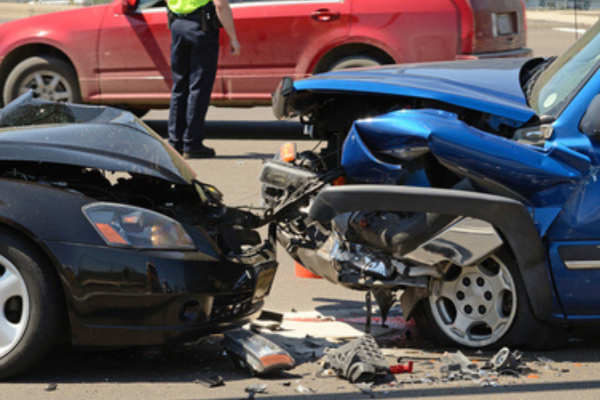
Head-on collisions are one of the most severe auto accidents you can be involved in. Two vehicles colliding with each other, often at high speeds, can lead to a variety of injuries, some of them very serious, and can impact various parts of the body.
Understanding injuries commonly associated with head-on collisions is important for both drivers and passengers so they can get the proper medical care and legal advice quickly.
Head Injuries
One of the injuries commonly associated with head-on collisions are head injuries, including traumatic brain injuries (TBI). The force of the impact can cause the head to hit the steering wheel, dashboard, or windshield and lead to concussions, cuts, or even brain damage.
Facial Injuries
The face can be injured during a head-on collision due to broken glass or impact with the steering wheel or dashboard. Injuries can include cuts, broken bones, and damage to the teeth.
Neck and Spinal Injuries
The violent nature of a head-on collision can cause the neck and spine to twist or jerk abruptly. This sudden movement can cause the soft tissue in the neck to be strained or injured. This is known as whiplash, one of the most common injuries in rear-end collisions as well.
Depending on how severe the collision was, it can lead to spinal cord injuries that can result in paralysis or other long-term injuries.
Chest Injuries
The impact from a head-on collision can cause the chest to hit the steering wheel or dashboard. This can result in chest contusions, fractures, or damage to internal organs. Broken ribs are a common injury after a head-on collision.
Abdominal Injuries
The abrupt stop during a head-on collision can cause injury to the abdominal organs, including the liver, spleen, and kidneys. These injuries may not be immediately obvious and can lead to life-threatening complications if they aren’t treated in a timely way.
Lower Extremity Injuries
The legs and knees are particularly vulnerable during head-on collisions. Broken bones, dislocations, and soft tissue injuries to the legs and knees are common. In severe collisions, the legs can become trapped or crushed, causing catastrophic injuries.
What to Do if You Are in a Head-On Collision in Florida
The actions you take after being involved in a head-on collision car accident can impact your health, livelihood, and any personal injury claims you may make.
Immediately Seek Medical Attention
Because of the severity of many head-on collisions, victims should seek immediate emergency medical care at the nearest hospital emergency room. A doctor’s office or urgent care clinic may not be equipped to deal with the kind of traumatic injuries suffered in many head-on collisions. Invisible injuries like internal bleeding must be addressed immediately.
Get Follow-Up Care
Once the most urgent injuries are addressed, it’s important to schedule any recommended follow-up care. You may have suffered injuries that emergency care doesn’t address.
Contact a Florida Car Accident Lawyer
Seeking the advice of a lawyer if you have been in a head-on collision is essential. Though Florida is a no-fault state, you may be entitled to bring a personal injury claim against the responsible parties.
Our legal team has over 40 years of experience seeking justice for our clients who have been the victims of car accidents. We’ve seen the results of untreated injuries, which can be devastating, and that is why you should always seek medical care after an accident.
Our attorneys have sought and won millions of dollars for our injured clients. Don’t allow your health and legal rights to go unaddressed after a car accident.
Call 850-601-1111 to schedule a complimentary consultation with no obligations. This consultation will help you explore your legal options. Let us help you fight for fair compensation.


